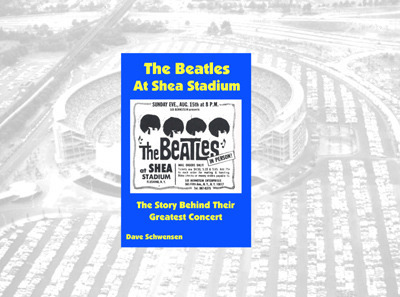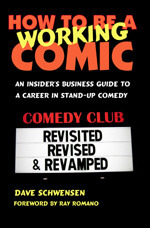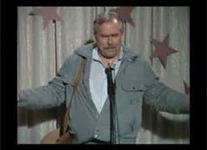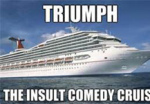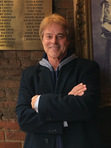Dave Schwensen's Blog, page 28
August 12, 2013
Who’s too old to start? Readers share thoughts
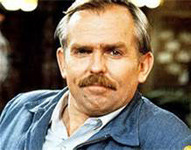
Going Postal
Okay, it’s time for me to channel my inner Cliff Clavin and open the ol’ mailbag. And if you’re not old enough to know who Cliff Clavin is, this week’s FAQ And Answer may not concern you as much as it would someone who remembers Boston’s favorite mail carrier.
Special bonus for Cliff fans: At the end of this article I’ll post the link for a video of Cliff Clavin doing his stand-up routine on Cheers. Talk about death on stage, this was it!
If you happen to fit that youthful post Cheers demographic and only know of actor John Ratzenberger (Cliff Clavin) because you saw his name credited as a voice in the Toy Story films, you can take a week off from this column.
Just sit back, grab your sippy cup and take a nap. Your mental wake-up alarm will go off in about 20 years…
Wait a minute! I’m starting to sound like some grouchy old guy who throws insults and sarcasm at the younger generation of comics and speakers. But in my defense, this has all been a set-up for what follows. Let me explain…
As you know, I’m always asking for your comments and advice to pass along. Sometimes I get a lot and other times not so many. But one recent topic that made a lot of you go postal was…
How old is too old to start in comedy or the speaking biz?
Ever since that particular FAQ and Answer ran on June 11th (you can scroll down if you need a reminder), we’ve almost hit the century mark in replies. So I thought it was time to deliver the words of wisdom, age and youth shared by your fellow readers.
WARNING: The follow comments are for readers mature enough to realize there’s life in showbiz – even if you’re too old to star in your own series on the Disney Channel…
How old is too old to start in comedy or the speaking biz?
————————————
“To me age counts far less than preparation and experience. If you can deliver the performance your audience wants, you can be 90 years old and still make it. I saw a dancer last night – the guy must have been in his 80′s – ask a much younger woman to dance. He then proceeded to “wow” everyone with his energy and style. Comedy and speaking are the same. If you are passionate about the skill and are willing to put in the work to make a new career, go for it.
I thought the question was so relevant to the way people think about themselves. So many quit too soon and never reach their true potential. I find that I grow every day in understanding and knowledge. It would be a shame not to share that with others.
By the way, I loved your blog. The material is just as relevant to speakers as it is to comics! - Lee Pound
—————————————
If you think you’re “too old” to have fun, follow your dream or pursue your passion, you’re absolutely right. Age is a state of mind, not a number. The only person who can stop you from enjoying yourself is you. – Janet White
—————————————-
I’m too Gaddamn old to start comedy and I have another show tonight. What time does it start? – Charlie Wiener
—————————————-
“The greater the distance traveled – the greater and more hilarious the stories.” – Peter de Jager
—————————————
I have a presentation titled, “At What Age Should You Stop Dreaming?” The answer is never. Speaking, comedy, or any form of entertainment is all about what you have to offer and how willing you are to do it. We are all still human beings who need our spirits lifted. Who is to say that age has anything to do with that? – Sonny Melendrez
—————————————
How inspired would you be by a 90+ speaker with a heavily tremulous voice, hard of hearing and who occasionally stops to wheeze and adjust his slipping dentures?! Would you feel sorry or happy for him? I agree, it’s not about the numerical age, but the condition of the body and the mind at the time of delivery – Billet Magara
—————————————
The short answer is if you’re dead, you’re done. Other than that, carry on! – Marco Kelly
—————————————————————————————————
And now for something completely different…
The Kickstarter campaign for my next book, The Beatles At Shea Stadium has launched and is running until September 3, 2013!
Follow THIS LINK to watch the video, find out more about the project AND the rewards if you’d like to help me get this published.
Thanks and as always… Keep Laughing!! Dave
—————————————————————————————————
Think of it this way – the older you are, the more stories you have to share. And the more experiences you have to make other people laugh. I’m starting a career in speaking at age 63, and my story today is more inspiring, entertaining, and riveting than it would have been at any other time in my life. – Nancy Depcik
—————————————
I was so intrigued by the question on age for the very reason that I struggle with that same question. I tend to find myself drawn to speakers who are so called, “older.” I admire their wisdom, stories and authenticity. I have found for myself, personally, the older I get the more I lean into my own skin. I feel more confident and poised.
I couldn’t agree more that it really gets down to mindset. We all have value to offer, no matter the age! – Julie Carr
—————————————
Life begins at 60. Just grab the excitement. I have made award-winning speeches and the depth of my speeches plus the passion would never have been there when I was younger.
I am the lady who had twins at 60. My life is just beginning. With inspirational award winning speeches and new opportunities opening up to me, I am more excited about my life than ever. – Frieda Birnbaum, Phd
—————————————
Age is not important… commitment and passion is! I finally started my Public Speaking business when I was 42. And now I look back at my lifetime of experiences and they serve as ingredients for me cooking up my success! – Anthony Hogan
—————————————
Wow!! What does age have to do with it? Nothing. Just think – Colonel Harlin Sanders was 65 when he started his Kentucky Fried Chicken Franchise. Clara Pella was 82 when she did the Wendy’s commercial and became an instant celebrity with the line, “Where’s the beef?!” – Willie Johnson
—————————————
If you want to live to a ripe old age, have fun by presenting a little humor in front of others. Some people are willing to pay the best prices for cheeses and wines when aged, therefore never let age be a hindrance to your dreams for the best is yet to come. – Rene Roy Jr., DTM
—————————————
Two things should stop you performing humorously in front of others if you want. One is death. The other is Alzheimer’s. All other things being equal, anyone who says you shouldn’t is patronizing fool. They can stay away if they want, but it’s their loss. – Guy Clapperton, FPSA
—————————————
At 74 I feel not only younger than ever but also wiser than ever. It will have to be up to the audience to show when I had better retire. – Paul van der Vliet
—————————————
My late business partner, the great Bill Grove, was the first President of the National Speakers Association and is widely regarded as the father of the professional speaking industry. Bill retired from full time speaking in his 70′s, but made a comeback at age 85 and was one of the highest paid speakers in the world until his death at age 90. Hollywood is in the process of making a $20 million dollar move, starring Anthony Hopkins, about his comeback story. Charles Tremendous Jones spoke professionally until his death at 87. I lost a national keynote to him. Zig spoke until he got sick in his 80′s. Larry Wilson spoke until he had a stroke at 81. Bob Proctor is still dynamite at age 79.
If you have the skills, age is not a factor in this business. Go for it! – Steve Siebold
—————————————
Death is too old. Anytime before that there will always be an audience that can be blessed by your comedy. – Bob Simpson
———————————————————————————
Sign up now for Dave’s free weekly newsletter and
receive 25% off the Amazon.com list price!
———————————————————————————
GREAT article today! I got started in comedy at the age of 45, and that was ten years ago (please don’t do the math). Suffice to say I got my butt handed to me a bunch of times before I learned how to present my material in a way that effectively bridges 2-3 generations. There was a time when I would almost panic at the sight of a really young audience. But that’s not the case today. I don’t really know when it changed, just that it finally did. A couple months ago, I rocked a really small college crowd for the first time ever. That’s when I really knew something was different.
Without a doubt, age is an obstacle. But it’s only a barrier if we accept that. As you said, there are lots of markets for people my age and older (and younger was well). And a niche performer knows how to focus on those markets in a way that makes them truly unique. Then you have guys like me who love the club circuit to the point that we’ve had to learn how to broaden our demographic appeal. It makes us easier to book as a feature, but it’s also not as lucrative as specializing in a more focused market. So there’s a trade-off.
I believe in my case, two things happened that really made the difference with younger crowds. First and foremost, I had to discover who I really am onstage. I remember people telling me in the early days that it takes 7-10 years to really discover your stage persona to the point that you can optimize it. Like everyone else, I thought I was the exception… “I know exactly who I am!” Well, guess what? I’m no different than any other comic. In my case, it took about 8 years.
Along with that, I had to accept the fact that the audience forms their initial impression of me as I step to the edge of the light offstage, waiting for my intro. By the time I can reach the mic stand, they’ve already begun forming an opinion. For older audiences, it’s “Okay, this guy’s about my age. But is he funny?” For the really young people it’s, “OH MY GOD… THAT’S SOMEBODY’S DAD!!!” Once I understood what they initially see, I was able to get past those impressions and try to shatter them. Comedy is all about surprise, and things changed when I developed the art of making both halves of the audience go, “Wow! I didn’t expect that out of him!”
Thanks, as always, for sharing your insights. I hope to thank you in person someday! – Dave Glardon
—————————————–
The game is not over until you say it’s over. A person is never too old to pursue any passion within them. Age makes an individual wiser and can pass knowledge to others as well as motivation. Never knock someone down for following what they feel inside themselves to pursue, but rather applaud them for having the courage and determination to fulfill their vision. When a person has the talent to make us laugh, they provide us with joy, even for a moment. And when someone has the skill to encourage through speaking, they up-lift us all. Stay motivated & with a smile… Alfredo
———————————————————————————–
And as promised – welcome to the stage…
Video at THIS LINK
——————————————————————————-
Dave’s next comedy workshop starts at The Cleveland Improv on Saturday, September 14, 2013. Includes a performance at The Improv on Wednesday, October 3rd at 7:30 pm. For details visit www.TheComedyBook.com
————————————————————————————-
Dave Schwensen is the author of How To Be A Working Comic: An Insider’s Business Guide To A Career In Stand-Up Comedy, Comedy FAQs And Answers: How The Stand-Up Biz Really Works, and Comedy Workshop: Creating & Writing Comedy Material for Comedians & Humorous Speakers.
For information about these books, comedy workshops at The Cleveland Improv, and private coaching for comedians and speakers in person, by phone or via Skype visit www.TheComedyBook.com
Copyright 2013 – North Shore Publishing


August 5, 2013
Finding corporate gigs and dealing with gatekeepers
Dave – I’ve taken your comedy class in Cleveland. It was a wonderful experience. Our class had a blast and taking the stage up at the Improv was exhilarating. Okay, now that I’ve saved you the time of promoting your class, I did have a question. You recently wrote about using humor to gain corporate gigs. How does one go about finding these speaking opportunities? What is the point of contact? Event planners? Human resources or some other person at the corporate office? Who is the gatekeeper and how should one approach that gatekeeper? – Brett T: Creative Ninja, Writer, Trainer
Hey Brett – Come on… You know me. Just because you plugged my workshop (thank you btw) doesn’t mean I’m not gonna plug it again. It’s called promoting – which is what you also have to do if you’re interested in booking corporate gigs.
That’s true whether you’re a comedian, humorous speaker – or any type of presenter or entertainer. No one will hire you unless they know you’re out there and available for work.
Now, the article you’re referring to was about using humor during your program at corporate events. It’s still posted for May 28th if anyone wants to scroll down for a reminder. But your question has given it a different spin:
How would you use humor to gain corporate gigs? Here’s my take on it…
But first of all – I’d like to throw this question out to anyone who works in the corporate market. What is your best advice on how to find corporate gigs? If you’d like to share, send to dave@thecomedybook.com and I’ll share them in an upcoming newsletter.
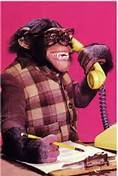 I go through phases, but guess I could admit to being a big cold caller. It sounds miserable (think telemarketer) and was at first. I dreaded those work-related calls. But then I came up with an idea of making them semi-humorous.
I go through phases, but guess I could admit to being a big cold caller. It sounds miserable (think telemarketer) and was at first. I dreaded those work-related calls. But then I came up with an idea of making them semi-humorous.
In the corporate market you really can’t be a one-liner, class clown type of jokester when first contacting a “gatekeeper” (we’ll get to that term in a moment) by phone. You’ll either get the Rodney Dangerfield treatment (no respect) or treated to an entire symphony of Musak when they put you on hold.
It’s a business call and you have to treat it that way. BUT there’s no reason why you can’t have some type of fun(ny) opening “Hello” line that can be a conversation starter. Here’s an example that I’ve used (and it’s worked – no BS):
———————————————————————————
Sign up now for Dave’s free weekly newsletter and
receive 25% off the Amazon.com list price!
———————————————————————————
“Hello, this is (your name) and I’m calling from “beautiful” or “hot and humid” or “snowy and cold” (name the city closest to you that you know they’ve heard of).
THEN WAIT.
More times than not, the person answering the phone will have a comment about the city. They’ve been there; have relatives there; know something about it (good or bad – doesn’t matter); or have at least heard of it.
BINGO!!! Conversation starter. Let them talk and all you have to do is work off of what they’ve just given you. Get it? To continue this random example, they might mention the city’s sports teams (I’ve gotten that one a lot). Since I’m from Cleveland, you can bet I’ll have something to say. Then once we have a (hopefully friendly and/or funny) conversation going I ease into my sales pitch.
“I have a program that would be great for your company’s next event. Let me tell you about it…”
And here’s another secret. If my opener is greeted by silence or a negative reaction I don’t waste a lot of time on the call. Since I deal with humor, this is obviously not a good fit for what I do. I’ll move onto the next one.
Once again, I’m sure we’d all be interested in YOUR tips. Send to dave@thecomedybook.com
How do you find speaking opportunities?
Cold calling is just one way (and everyone’s least favorite). The best is always by networking. I’ve talked about this a lot in past newsletters and call it the open-mic circuit for the corporate market. In a nutshell, every community has business organizations – like Rotary, Kiwanis, etc… They are all looking for presenters for their regular meetings (breakfast, lunch, dinner, awards, retirement, holiday, etc…).
 Play detective and find who schedules these meetings and volunteer to speak – for FREE. This is a major source for contacts. Not only can you showcase your program (usually about 20 minutes) but they’ll probably feed you for FREE. At the end do a meet and greet and liberally hand out your business cards while trying to collect as many as you can.
Play detective and find who schedules these meetings and volunteer to speak – for FREE. This is a major source for contacts. Not only can you showcase your program (usually about 20 minutes) but they’ll probably feed you for FREE. At the end do a meet and greet and liberally hand out your business cards while trying to collect as many as you can.
They might have an event coming up and are interested in hiring you based on your FREE showcase or talk about possibilities in the future. In either case, ask what’s the best way for you to follow-up – and do it.
I’ve booked quite a few paying gigs this way – and gained a few pounds at the same time.
What is the point of contact? Event planners, human resources…?
You’ll need to play detective again to find out that info for individual corporate events. I’ve learned firsthand it can be just about anyone – from an assistant to the head honcho of the company. Go online and learn what you can about the company before calling. You can also ask the gatekeeper…
Who??
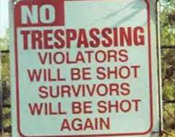 The gatekeeper is the person that answers the phone (cold calling) who considers it their personal duty to keep you from talking to the decision maker (person who can book you). You need to convince the gatekeeper that you and (especially) your program are worthy of this personal contact.
The gatekeeper is the person that answers the phone (cold calling) who considers it their personal duty to keep you from talking to the decision maker (person who can book you). You need to convince the gatekeeper that you and (especially) your program are worthy of this personal contact.
The above humor-using example (be creative) can sometimes be the needed ice-breaker. Other times it’s a longer process. This would involve sending (snail or email) info about yourself and what you can offer to make their event successful – whether it’s entertainment, a keynote or training. Then you need to follow-up without being a pain in the you-know-what.
How do you do that? It’s in my book How To Be A Working Comic (another plug!) and involves a timely use of postcards, emails and calls. There are no guarantees, but gatekeepers, event planners, humor resources, assistants and head honchos will never know you’re even out there and available unless you present yourself.
It’s called promoting. And in my opinion, an element of humor can help you stand out from the competition.
And speaking of networking and promoting – and generally kick-starting conversations, (this is another plug) are you subscribing to my once a month newsletter? It’s called Talking For Success and geared toward the corporate market. You can sign up through THIS LINK and (until August 31st) get 25% off the list price of How To Be A Working Comic: Revisited, Revised & Revamped 2013 through Amazon.com.
——————————————————————————-
Dave Schwensen is the author of How To Be A Working Comic: An Insider’s Business Guide To A Career In Stand-Up Comedy, Comedy FAQs And Answers: How The Stand-Up Biz Really Works, and Comedy Workshop: Creating & Writing Comedy Material for Comedians & Humorous Speakers.
For information about these books, comedy workshops at The Cleveland Improv, and private coaching for comedians and speakers in person, by phone or via Skype visit www.TheComedyBook.com
Copyright 2013 – North Shore Publishing
[contact-form]


July 29, 2013
Talent agents vs talent bookers
Hey Dave – You’ve been referring to talent agents and talent bookers. What’s the difference? – Big G
Hey Big G – Good question. But even if it was a lousy question I would still tell you it’s great because no one calls me Big Dave. It’s just a personal safety concern because… well, how BIG are you?
Talent agents are different than talent bookers. Here’s the scoop:
A TALENT agent works with a selected group of performers (for our case, let’s use comedians) on a regular basis. Their business is called an AGENCY and the person working directly with the comedian would be considered his agent. They would be business partners.
A talent agent’s job is to get his comedians work. Talent bookers, event planners, club managers or anyone looking to hire a comic would contact his agent. The agent would work out the details, including the important where, when and how much the comic is paid for the gig. The agent would also take care of the contracts and in most cases, collect the money, take out his percentage, and pay the comic what he’s owed.
Of course like a lot of stuff in the entertainment biz, there are different methods. I’ve worked with comics recently who are paid in full following their last show (for instance a weekend in a club) and they send a commission to their agent. It all depends on what they’ve agreed to do.
Usually this type of representation requires another agreement – a legally signed exclusive contract between the agent and the comic. Again from recent experience, I don’t know too many agents who are willing to free-lance. This means they would send out a comedian for paid work without a having a signed contract. The reasons they would consider doing this might be:
To see how well the agent and comedian work together and…
To see if the comic is worth the time and effort the agent will need to spend getting him work.
Free-lancing seemed to be more common years ago (working comics please correct me if I’m wrong!). It was like dating without a promise you won’t see other people. You know – playing the field.
But things have gotten more protective business-wise as the business has become BIGGER $$$-wise.
———————————————————————————
Sign up now for Dave’s free weekly newsletter and
receive 15% off the Amazon.com list price!
———————————————————————————
Talent agents want to protect their investment, which is the time and effort spent finding work for the comedian. Sometimes this investment will include money, but honestly (think about it) they’re not gonna throw BIG $$$’s into a comedian’s career unless the comic promises not to see other people. In this case it means not working with other talent agents.
Reason? The free-lance gig might parlay into a BIGGER $$$’s gig. Will the comic throw the talent agent a BIGGER commission for this one? Of course the honorable answer would be yes. But how often have you heard show business called an honorable profession?
That’s why most everyone today wants contracts – with all the i’s dotted and the T’s crossed and legal signatures at the bottom of the page.
Want more? Okay, here’s different scenario:
Another free-lancing agent (this is turning into a real triangle, isn’t it?) might hook the same comic up for a BIG payday. That’s usually a good incentive for the comic to dump the agent who didn’t book the BIG payday and go exclusively with the one who did. That means the loser agent (following me so far?) has spent time and effort he could’ve used working for an exclusive client for nothing… no commission… nada… zilch.
It doesn’t make good business sense. That’s why you’re not going to find as many talent agents who are willing to free-lance anymore. No one likes to get burned.
So if a talent agent is serious about a comedian, chances are good (there are always exceptions) they’ll want an exclusive agreement. This is a signed contract promising you won’t work with any other talent agent for as long as the contract is binding.
But keep in mind this is a two-way business deal.
Sometimes comics (speakers or other performers) will sign with any agent just because they feel (as I’ve heard sooo often), “I NEED an agent!” But signing with the wrong agent – one who doesn’t share the same vision for your career and goals – can be more of a headache than doing it alone.
To quote Smokey Robinson: “You better shop around.”
Here’s another example:
Just about every large city has some type of talent or modeling agencies finding work for their clients on a local level. Sometimes when a BIG Hollywood production comes to town these local agents can get their talent work as extras or in small roles, but the BIG roles are cast in Hollywood and New York through CASTING agents.
Don’t even try to fool yourself into thinking that’s not true. That’s why the BIGGEST casting agencies are located in those two entertainment meccas. I doubt Brad Pitt or George Clooney will be attending casting calls anywhere else for their next big film production.
BTW casting agents are close relatives to booking agents. I’ll get to that in a moment. BITHMT (but in the meantime) back to the example…
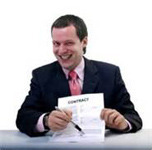 As a comic you want to work with the talent agent that shares your career goals. Do you want to stay in your local area and work? Then sign with a local agent. But if you’re thinking of something BIGGER down the road, make sure there’s a time limit after which you can opt-out of the contract, You don’t want to be stuck indefinitely with an agent that can’t help take your career to the next level.
As a comic you want to work with the talent agent that shares your career goals. Do you want to stay in your local area and work? Then sign with a local agent. But if you’re thinking of something BIGGER down the road, make sure there’s a time limit after which you can opt-out of the contract, You don’t want to be stuck indefinitely with an agent that can’t help take your career to the next level.
Reason? When you sign with a talent agent they receive a commission on any work you do during the time of your exclusive contract. I personally know more than a few comics that had signed with small local agents who didn’t do squat for their careers. But when they hit it big and the money started rolling in – who do you think showed up?
Yeah – you guessed it. The small time agent who had an exclusive contract. In all the cases I know they were paid BIG $$$ settlements before agreeing to let the comedians opt-out of their contracts. So keep in mind that a talent agent can be a long term partner and you work as a business team.
Now onto the booking agent…
A booking agent is the person who will hire you for work. For instance, the guy who books the acts for your local comedy club is considered the booker for that club. He’s not going to schedule you to play the rival club across the street because they’ll pay you more money. Only your talent agent would do that.
On a larger scale, a nationwide chain of clubs like The Improv will have one booking agency scheduling the headliners for all their clubs. But don’t even think about asking them to book you into a rival club if all their slots are filled.
Of course the waters can always be a little muddy with some booking agents also acting as talent agents. What I’m telling you is only a simple overview of how it’s supposed to work.
If you want more info about what a talent agent does (and I’ll throw talent managers into the mix ) check out my book How To Be A Working Comic. Yeah, I know that’s a blatant plug, but since I’m with a literary agent I gotta follow my contract for her to get a commission!
——————————————————————————-
Dave Schwensen is the author of How To Be A Working Comic: An Insider’s Business Guide To A Career In Stand-Up Comedy, Comedy FAQs And Answers: How The Stand-Up Biz Really Works, and Comedy Workshop: Creating & Writing Comedy Material for Comedians & Humorous Speakers.
For information about these books, comedy workshops at The Cleveland Improv, and private coaching for comedians and speakers in person, by phone or via Skype visit www.TheComedyBook.com
Copyright 2013 – North Shore Publishing
HAVE A COMMENT?
[contact-form]


July 23, 2013
Always ask before you audition
Hey Dave – I have a big audition coming up. I’m not going to have any profanity in my (comedy) set, BUT I’m thinking of having a cleaner version and one that is a bit edgier. I’m thinking of asking the panel of judges what type of set they want before I perform. Do you think this is a good idea? Thanks – DS
Hey DS – Yeah, I always think it’s a great idea to ask the judges at a contest – or talent booker for a club or any other venue you’re showcasing for – about restrictions they might have on material and language. In fact I emphasize this point in my workshops for a couple reasons:
It shows experience. You can adjust your material depending on the audience – and talent bookers like that. (It’s a business – remember?)
It can give you an edge over the competition. I know I talk a lot about how supportive the comedy industry is (nothing has changed my mind about that), but the bottom line is that they can’t hire everyone so you need to stand-out at showcases. Again – think business.

Take a number and
wait your turn…
For an example, there may only be five performance spots available for a television show. But you know as well as I do that a LOT more than five comics will be auditioning. Of course being funny is the No. 1 factor – and face it, sometimes it’s who you know (am I right Hollywood comics?!).
So let’s assume everyone at the showcase is funny and knows the same people – so those requirements are met. The tie-breaker would be knowing who the audience will be and adjusting your material and performance for that audience.
You’re not gonna do the same set on Barney and Friends that you’d do on a Comedy Central Roast. Get it?
If you’re auditioning for work on a cruise ship and walk out dropping “F-Bombs” and complaining about your sex life, you might as well pack your bags and consider a career on dry land. Half the on board comedy shows are early evening family events with blue-haired ladies and their preteen grandchildren in the front rows. Later on the parents will go out for the “adult
humor” comedy shows by the same comics in one of the ship’s late night lounges after the kids are asleep. But if you can’t play to both crowds, you don’t get paid.
How would you know this if you’ve never been on a cruise or had a chance to pick the brain of someone who works cruise ships? My strategy would be to ask the person auditioning you for the gig BEFORE you audition.
Of course this advice means nothing if you’re already settled into who you are on stage (your comedy voice) and it doesn’t work in certain venues. Trust me, I’m not trying to push everyone in the same direction or preach work clean at all costs. That would only create comedy clones and make the industry pretty boring.
Think “Corporate Rock” and you’ll know what I’m referring to.
Comedy is a creative art and a form of free speech. If you want to be an x-rated comic, go for it. Just don’t go to showcases where you’re unsure if your style will be acceptable for work (like a kid’s show or family cruise). You’re not only wasting your time, but also taking opportunities away from other comics who would want to audition for the gig.
Another example of knowing beforehand what you CAN talk about vs what you can NOT talk about depending on the audience…
———————————————————————————
Sign up now for Dave’s free weekly newsletter and
receive 15% off the Amazon.com list price!
———————————————————————————
When I booked A&E’s An Evening at the Improv, we had certain “rules” for the performances. During a noon meeting with the comics who were taping the show that night I’d go over the rules…
Don’t make fun of God or religion. Our highest ratings were in The Bible Belt and we didn’t want to lose viewers. Higher ratings attract sponsors (again – think business)
Don’t knock specific products because we didn’t want to be sued. You can’t say a certain car is dangerous or a certain fast food restaurant will give you food poisoning. (Do I need to say it again – business?)
Don’t sing a song parody for longer than (I think it was) 18 seconds. Producers were not going to pay song royalties for television broadcast, which is what would happen if any song was played for longer than (I think it was) 18 seconds. At that time it seemed a lot of comics were singing funny words to The Brady Bunch Theme Song. They could do it – but it would be cut out if it went over the time limit of being “free.” (This time – music business rules)
What about comics that didn’t follow the rules? If you watch reruns of A&E’s An Evening at the Improv, keep in mind the comedians were each given 7 minute sets. But some are on screen for less time – like only 4 or 5 minutes. What’s up with that?
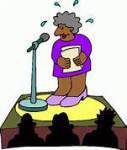
Sweatin’ out the cuts
They didn’t follow the rules. In the business it’s easy to correct these mistakes in an editing room – or in the case of live performances, auditioning the acts first and not hiring the ones that can’t follow the guidelines.
In fact when it comes to working clubs, I can’t even think of a situation where you wouldn’t have an opportunity before showcasing to ask the talent booker if there’s anything you shouldn’t say or talk about. Even if it’s only in an email or phone call prior to going there. They should be straight with you, since they know their audience and what they’re looking for better than anyone else.
For any audition associated with television or a “larger than a comedy club” market (think colleges, cruise ships, corporate…) your best bet is to do clean material. Everyone in the comedy biz who knows anything about anything knows comics can “dirty it up” when they have to.
The goal for talent bookers is to find comics that can appeal to the venue’s audience. As a performer, you need to find that out. And unless your talent is mind-reading, the best way I know to do that is to ask.
——————————————————————————-
Dave Schwensen is the author of How To Be A Working Comic: An Insider’s Business Guide To A Career In Stand-Up Comedy, Comedy FAQs And Answers: How The Stand-Up Biz Really Works, and Comedy Workshop: Creating & Writing Comedy Material for Comedians & Humorous Speakers.
For information about these books, comedy workshops at The Cleveland Improv, and private coaching for comedians and speakers in person, by phone or via Skype visit www.TheComedyBook.com
Copyright 2013 – North Shore Publishing


July 15, 2013
Sending LA talent agents promo packages
Hey Dave – I just went to a (big) audition in LA but didn’t get in because there were too many people. Like you advised, I gave one of the judges my promo package though. I’m not living in LA and it was a long way to travel for this. Do you think it could be useful for me to send my promo materials directly to comedy agents in LA? Thanks – D.
Hey D. – Bad news that you didn’t get in for the audition. I know the one you’re referring to and since it involved television, it was guaranteed to attract a lot of comedians. In showbiz terms, it was a cattle call. Everyone in the entertainment biz knows what I’m talking about. You line up early with a ba-zillion others and hope you’re seen before they cut-off the audition.

Take a number
This process makes everyone feel more like a number, rather than a talent. I remember a comic from one of my workshops traveled a looong way to audition for Last Comedy Standing. They were only seeing the first 100 people in line and I’m pretty sure he was around #110.
He wasn’t seen either. He called me – while standing in line – and told me how some comics were being escorted to the front of the line and were seen without having to wait at all.
What’s up with that? Okay, I’ll tell you…
It’s what happens when the powers that be are already familiar with a comedian. They already know what he can do and because of that, they already think there’s a good chance he could be right for that particular show.
So he is seen.

Let’s make this easy
It’s a lot easier bringing in someone they’re already familiar with and they know has the experience, rather than auditioning a line-up of comics they know nothing about. I’m not saying these types of auditions don’t work. If they didn’t, no one would do them anymore. But talent bookers know that just because someone lined up early enough to be seen during a cattle call, it doesn’t mean they have the talent or experience they’re looking for.
It could only mean they have a working alarm clock.
That’s pretty much how it works with talent agents in the big-time showbiz centers of LA (and NYC as long as we’re on the topic). To earn a living talent agents have to spend a LOT of time and effort getting their clients work. And for them to do this you can bet they’ll need to know exactly what the talent (comedians) can do.
The best way to do that? See them perform in person. And not just once, but over and over in front of different audiences and in different venues. They really want to know the talent is worth their time and effort.
They need to know firsthand.
Can they commit to doing this based on a mailed promo package or website? Not very often. But it can be a start (a good introduction) or a good reminder following an audition. That’s why I advised you to take a promo package with you to the audition. If you don’t get in, there’s always a chance it could serve as name-face recognition (a reminder) down the road. It’s a long shot of course, but you never know.
As far as sending blind (not requested) promo packages to LA agents your best hope is that it serves as an introduction. To be honest – I don’t think they watch that much from comics who are not based in LA. Even if they do, they’ll still want to see you live. And not just once, but over and over. They’ll need to know firsthand that you can be relied on to give a great show and that you have the experience and talent worthy of their time and effort to get you work.
———————————————————————————
Sign up now for Dave’s free weekly newsletter and
receive 15% off the Amazon.com list price!
———————————————————————————
The best thing you can do if your goal is to eventually land an LA agent is to get REALLY good before you approach them about being seen.
For two great examples of what I’m talking about, read the interviews with Drew Carey and Jeff Foxworthy in How To Be A Working Comic. Each had the goal of appearing on The Tonight Show, but it didn’t happen until they were seen on stage by the producers in LA.
I know there are always exceptions. And some LA comics will disagree with this statement, but agents frequent the clubs actively looking for new talent. That’s how they earn their money.
If you’re truly interested in LA, make a trip to check out the comedy scene. Go to the clubs and the open-mics. Do you have any contacts who can help you get a showcase at one of the major clubs? Try to schedule one or two in advance, then use your promo package as a promotion for these shows.
It’s how public relations – advertising – works. Think about whatever big-budget movie is opening this weekend. You’ve seen the commercials and read the print ads for weeks (promo packages) and now it’s time for the film to be seen. If the publicists have done their job by build up interest, there should be an audience.
That’s how you should work your promo material.
Agents may not specifically come out to see you. But your promo might serve as name-face recognition if you’re in the right place at the right time – which would be on stage in a club where they’re looking for new faces.
——————————————————————————-
Dave Schwensen is the author of How To Be A Working Comic: An Insider’s Business Guide To A Career In Stand-Up Comedy, Comedy FAQs And Answers: How The Stand-Up Biz Really Works, and Comedy Workshop: Creating & Writing Comedy Material for Comedians & Humorous Speakers.
For information about these books, comedy workshops at The Cleveland Improv, and private coaching for comedians and speakers in person, by phone or via Skype visit www.TheComedyBook.com
Copyright 2013 – North Shore Publishing


July 8, 2013
Advice from readers on sending out DVD’s
Hey Dave – Does anyone really send out DVD’s anymore? Do bookers even look at them? I think YouTube is the way to go. - C.L.
Does this question seem familiar? If you’ve been following FAQs And Answers, you might remember it from February 25th. It’s still posted if you want to scroll down and read.
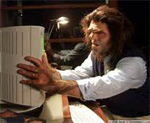
Old School
This one came back to me last week when I was (pretend) shopping for a new computer. You know, I wasn’t gonna actually buy, but I wanted to see firsthand the new features I’m missing out on.
The electronics-wizard I was soaking for information was in the middle of his sales pitch for a popular brand miniature laptop when I asked a question that stopped him cold.
“Where do you load in the DVD?”
To describe his response – imagine you just walked onstage. You delivered your opening line (speakers or comedians – doesn’t matter) and the audience responds with a silent stare. THAT’s what this guy did to me! On stage you start to sweat. One-on-one in a computer store I just hoped this guy DIDN’T laugh.
Mr. Wizard showed me a flash drive and said it takes the place of a DVD. If that gets too full or you start collecting too many, all your videos can be stored in a cloud.

Old School Deux
The obvious joke right now is to say my head was in a cloud after this piece of information. According to him, DVD’s are old school – similar to how the door guys at The Improv describe my musical tastes.
No doubt there are talent bookers and event planners who are techno-savvy, but I also happen to know a few who make me seem like a computer genius. One even looks at his DVD player as an evil device that made his trusted VCR obsolete (old school). I’m serious – no joke.
So that brings me back to our original question. Does anyone send out DVD’s anymore? I stated my point of view last February, but as always readers had their opinions.
Thanks to everyone who responded. Here’s what they had to share…
———-
Can’t remember the last time I sent out a DVD or the last time one was requested. Not sure how I’m gonna unload all the promo DVD’s I ordered three years ago. – G.S.
———-
There are probably enough VHS tapes and DVD’s of comics floating around we could build a new rocky mountain range and the sad things is no one has seen probably 1% of them. For proof I look at some of the people who have opened for me over the years. I guarantee no one watched their tapes even if they did charge them $25 to do so. – C.W.
———-
“I agree with the green reasons for using YouTube, but here’s the response I left on Dave’s LinkedIn page:
I was recently asked to send a DVD… and had to find my old stash of them. There is an advantage of a DVD: it allows you to send longer sets to bookers instead of having so much of your material exposed online.
Also, certain TV recordings (such as performances on Comedy Central) aren’t allowed online. But you can have “private” copies of them on DVD for personal distribution. I have an old Comedy Central set that only exists onine in a massively edited version on their site. When I want a booker or potential client to see the longer, unedited version, the ONLY way is on a DVD. – R.M.
———-
As a booker. I prefer a link to something more current then what is probably on a DVD, but I have lots of clients who still want the info on a DVD so they can pass it around as some corporate networks don’t allow them to view some video links. Just my 2 cents. – J.M.
———-
I use to send out DVD’s and still do on occasion (i.e. complete media kit). Yet, for the most part, I have found that online content is the best. I host a few clips on my site and then I have a YouTube Channel for the rest. Although I would like to add that some people are old fashion and still like to see your complete set or sets in order to determine if you are a good fit for what they are doing.
Side Note: One reason I quit sending out DVD’s to comedy clubs is…. I have been in a number of comedy clubs and have seen stacks of promo kits just setting in unopened envelopes that had never been viewed. One booker told me that she does not watch them simply because she believes that most of them are crap. Good Luck!!! – V.E.D.
———-
One of the bookers at the World Series of Comedy told the group of comics gathered for the seminar that you shouldn’t bother sending him a DVD. He said that he packed them up in a box and sent them to the troops. He hoped that what you were sending him was funny and that he wasn’t sending more pain to those who serve us. – J.D.
———————————————————————————
Sign up now for Dave’s free weekly newsletter and
receive 15% off the Amazon.com list price!
———————————————————————————
Watching a DVD or listening to a CD is too time-consuming for these club owners who operate their clubs at night usually three – four times a week. Give me a break please, there’s plenty of time to see at least ten acts during that period. But I have to defend them in a way…
My old manager once had a whole room filled with unopened DVDs.
I asked if I could open them to find out (just according to him) if these acts were as bad as he said. There were Magicians, Singers, Jugglers Comedians, Musicians etc… I started out with enthusiasm but after watching twenty two tapes I soon found myself throwing DVD’s in the garbage pile after watching for two minutes. Then I started throwing them out by the look that their covers they were in.
I find the best way is to get in by word of mouth. Sometimes someone who has the Club Owner’s ear. If that happens then… only then will you have a good chance of being seen. But!!! If you do this … your offering better be at the top of its class or it’s back to the dumpster. – F.P.
———-
Some still ask for them. Whether they watch them or not is a different story. – J.A.
———-
As someone who makes decisions on presenters all the time, we do watch them; a YouTube link would be preferred to a DVD. We want to watch the presenter doing what they do. There’s no need for a highly produced piece with no clarity of the size and type of groups you’ve presented to, examples of your style (rather than a voice over of what you say your style is), and the audience’s response to you.
The easier it is for someone to access something that clearly demonstrates what you do and how you do it, the better. – S.S.
———-
As a video producer, I can say that our production of DVD’s has dropped to nearly zero. Links to videos on websites are much preferred by most people. I like Vimeo.com for hosting over YouTube because you can turn off the jukebox feature that shows when they are done viewing (or you can have it offer another video or yours and not your competitor.
PS, I don’t have any connection with Vimeo. You need to be a pro member at $60 a year to get the control over how your videos play.- T.S.
———-
Most associations, bureaus, and corporations will accept and prefer videos on line. However, recently, three top level Washington DC area speakers bureau requested my information. All of them wanted a DVD with 10 minutes of uncut speaking. Only one of them said that a link to an on-line video would be fine. – C.G.
———-
I still do… but I’d rather bring the producer to my show. – J.D.
———————————
Dave’s next comedy workshop at The Cleveland Improv starts Saturday – July 13, 2013
Dave Schwensen is the author of How To Be A Working Comic: An Insider’s Business Guide To A Career In Stand-Up Comedy, Comedy FAQs And Answers: How The Stand-Up Biz Really Works, and Comedy Workshop: Creating & Writing Comedy Material for Comedians & Humorous Speakers.
For information about these books, comedy workshops at The Cleveland Improv, and private coaching for comedians and speakers in person, by phone or via Skype visit www.TheComedyBook.com
Copyright 2013 – North Shore Publishing
July 1, 2013
Record for your own protection
Hi Dave – In case you missed it, here’s a story you might want to discuss in the newsletter. The Supreme Court of British Columbia upheld the right of a bar patron to receive five-figures in damages from a comedian whose performance she alleges gave her post-traumatic stress disorder. You can view full article at THIS LINK.
We were taught to record every set – mainly so we could hear which jokes worked and how well – but also to document what was actually said. The example we were given was a case of a comic being accused of using inappropriate language in a mandatory “clean” show… – BM
Hey BM – Thanks for sending a link for the above story. I’m sure most of the comedy community knows about this, but if not you should check it out.
I’ve heard too often from comics and bookers that comedy clubs were The Last Bastion of Free Speech. In other words, as long as you’re funny it’s okay to have an opinion and not worry about being politically correct. Of course there are limits – call them going over the edge of edginess. If you don’t believe me, ask Michael Richards, Gilbert Gottfried and Tracy Morgan to name a few who took an unexpected journey into this Land Of Bad Press.
 For me to comment on the linked article would turn this version of FAQs and Answers into a soapbox for my opinions. Believe me, I have them and they should be obvious. Being involved in this laughter biz for as long as I have should make my views very clear. I wouldn’t have stuck around if I was easily offended.
For me to comment on the linked article would turn this version of FAQs and Answers into a soapbox for my opinions. Believe me, I have them and they should be obvious. Being involved in this laughter biz for as long as I have should make my views very clear. I wouldn’t have stuck around if I was easily offended.
Then again, I’ll share an opinion at the end of this article…
You also brought up the subject of recording your set – every set – so you can hear what works and what doesn’t. Since I’m a coach who believes you can’t teach comedy – sorry, there are no formulas or you’d all be telling jokes in the same style – the only way to find out what works or doesn’t is to do it in front of a live audience.
The audience is your teacher. If your performance is funny – the majority will laugh. If it sucks, you’ll hear crickets from the segments of the room where your family and friends are not sitting.
So the best way to learn this? Record your sets – every time. Listen and critique.
Did they laugh? Why?
Did they NOT laugh? Why – and can you fix it?
And for those of you who need a formula – that’s it.
You also brought up the importance of recording your set as a way to “document” what is said onstage. I don’t emphasize that as much as the writing benefits in my workshops, but it can serve an important purpose.
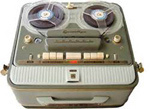 Some performers may not realize this, but did you know quite a few club owners or managers video (or audio) tape the shows? It’s nothing new. Okay – maybe the video is newer if you count the last 20 years as “recent.” Before that a lot of them at least had an audio recorder going.
Some performers may not realize this, but did you know quite a few club owners or managers video (or audio) tape the shows? It’s nothing new. Okay – maybe the video is newer if you count the last 20 years as “recent.” Before that a lot of them at least had an audio recorder going.
I know. I’ve been around since the audio recorder days and saw them.
I’ve also seen this “documentation” (proof) used to show performers that what they advertised (promised) was not what they delivered. And in some cases, it justified the talent booker not paying the act.
Example…
This past winter I received a call from a booker to warn me about a certain comedian who was promoting himself as a clean (G-Rated) act. He had booked him for a corporate show and was called-out by the client because the comic not only talked about sex – but also dropped the F-bomb in the process.
Are you kidding me? There are performers that dumb still getting hired? Unfortunately, yeah – simply because they misrepresent themselves and don’t back it up.
Of course the comic protested because he was now out of some big corporate show $$’s that he had planned on banking. He said his material was not that dirty.
So the booker told him to prove it. Send the audio or video. The comic couldn’t because he didn’t record it. So it came down to the client’s word vs. the comic’s word.
Can you guess who won? Yeah, the one with the big corporate $$’s to spend on their next event. All the comic received was a bad-mouthing as the talent booker called other talent bookers to warn them of the potential nightmare.
———————————————————————————
Sign up now for Dave’s free weekly newsletter and
receive 15% off the Amazon.com list price!
———————————————————————————
So now getting back to the article linked above (“Slurs force comic to pay $15,000 for ‘tirade of ugly words’ against lesbian patron after appeal falls flat”) it sounds like it came down to a big war of words. When the dust settled, the judge made a ruling based on whose lawyer sounded most convincing.
But did the comedian record his set? I never read anything in the article that said he did – which might (or might not) have saved him time, trouble and $$$’s. I side with him and believe in our right to free speech – but within certain limits.
What do I mean by that stipulation?
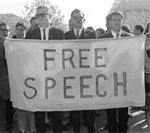 A comedy club normally is for patrons aged 21 and over. If you can’t take the heat – get out. It’s like watching television. If I don’t like something I change the channel – but don’t impose my beliefs on someone else who might enjoy it. As examples I’ll use all the murder / detective shows on prime time that I can’t stand. But they pull high ratings, so who am I to prevent others from watching?
A comedy club normally is for patrons aged 21 and over. If you can’t take the heat – get out. It’s like watching television. If I don’t like something I change the channel – but don’t impose my beliefs on someone else who might enjoy it. As examples I’ll use all the murder / detective shows on prime time that I can’t stand. But they pull high ratings, so who am I to prevent others from watching?
Instead, I’ll just change the channel to The Voice or a rerun of Seinfeld. Got it?
On the other hand, many years ago I took my 5 year old son to a very well-known amusement park. It wasn’t Disney because they have standards about this stuff. But as we walked around I saw a guy wearing a white t-shirt with the F-Bomb actually spelled out in all it’s four-letter glory in bold black lettering as in “F(bomb) YOU!”
Sorry cowboy – but not the time or place for your political incorrectness. Performers who work in the comedy (and speaking) biz will understand. It’s called knowing your audience and the audience this idiot had was a 5-year old kid with his parents.
This goes both ways. Performers – know your audience. Audience – realize where you are. If it’s a corporate show – it’ll be clean. If it’s a comedy club – chances are something will be said that’s not appropriate for 5 year old kids.
When you cross the line, that’s when the trouble – and bad-mouthing phone calls – can start. The best defense? Always record your set and be sure it backs up what you’ve been hired to do.
———————————
Dave’s next comedy workshop at The Cleveland Improv starts Saturday – July 13, 2013
Dave Schwensen is the author of How To Be A Working Comic: An Insider’s Business Guide To A Career In Stand-Up Comedy, Comedy FAQs And Answers: How The Stand-Up Biz Really Works, and Comedy Workshop: Creating & Writing Comedy Material for Comedians & Humorous Speakers.
For information about these books, comedy workshops at The Cleveland Improv, and private coaching for comedians and speakers in person, by phone or via Skype visit www.TheComedyBook.com
Copyright 2013 – North Shore Publishing


June 24, 2013
Readers comment on BOR sales
A couple of months ago (April 15th to be exact) the subject of doing back of the room (BOR) sales was brought up. The question had to do with selling merchandise following paid corporate gigs.
Is it acceptable when the client is already paying you a big fee? And either way (yes or no) what’s the best way to approach them about selling merch (showbiz slang for merchandise) following your presentation?
There were some good comments and advice about this from both comedians and speakers. I also heard from two booking agents who shared their words of wisdom. So this week I’m turning FAQs And Answers over to them.
First – speakers and comedians…
*
Great question, Dave. If the opportunity is offered, embrace it. Having a product whether $10, $100 or $1000 is a great way to give your message legs long after you leave the stage. Once you are 100% sure the client is on board with you offering BOR, offer several products that will allow your attendees to further their motivation or knowledge. Give them tools to expand what they learned from you.
Plus, if a person is excited about you when you are speaking to them they will be excited about you afterwards and it is a missed opportunity for branding and revenue generation to have BOR even at the corporate level. You never know who is going to move on or up and want you to speak with their group! – AW
*
 I know comics who do and comics who don’t. I think it depends on the event and whether the company or sponsor minds whether you sell. I always feel uncomfortable selling at corporate events as they pay well to begin with. I wish I didn’t have to sell at regular gigs, but the pay has dropped and expenses continue to go up. I don’t think it’s wrong to sell at private events, it just hits me as a little tacky sometimes. But to each his or her own. – CW
I know comics who do and comics who don’t. I think it depends on the event and whether the company or sponsor minds whether you sell. I always feel uncomfortable selling at corporate events as they pay well to begin with. I wish I didn’t have to sell at regular gigs, but the pay has dropped and expenses continue to go up. I don’t think it’s wrong to sell at private events, it just hits me as a little tacky sometimes. But to each his or her own. – CW
*
Only if discussed upfront and the venue calls for it. – PV
*
My contract allows me to make additional educational materials available for purchase after the event. Clients see it as a value added. They pay me to deliver my wit and wisdom to their employees. They are thrilled when their employees want to take me home. – BM
*
I always have a clause in my contract for BOR sales. Sometimes corporate clients even want this so their employees have a chance to continue the learning.
I just saw this posted on SANGEvents FB page from Chris Widener, who shared a great idea.
The day after he gives a speech – when he isn’t allowed to sell from the stage, but has something of value for the audience, he immediately does a Facebook targeting advertising and drives them to a special page with a special offer just for people at the conference he spoke at. – PC
———————————————————————————
Sign up now for Dave’s free weekly newsletter and
receive 15% off the Amazon.com list price!
———————————————————————————
Never conduct BOR sales without first clearing it with the meeting planner, no matter the client. Most corporations would probably not allow you to solicit their employees. However, many speakers work to get a product commitment up front, which is paid for by the client and seen as a “bonus” for participating in the training. – BA
*
The first step is make sure your client is on board with you and that they accept BOR sales. In today’s market, the majority of speakers believe that customers ask speakers not to sell products for some odd reason. Hence, the main reason for this respectful approach is that the latest research shows that Generation Y hates… absolutely HATES beings sold products, whether from the podium or likewise. This is the main reason why speakers bureaus, clients, etc… advise speakers to avoid selling BOR products.
The good old days that we think an attendee wants to leave with part of our knowledge, etc… are gone. You will have to find a different approach to sell products in a respectful manner that meets the ultimate needs of your customer. – GC
*
One approach is to offer them a link to some free downloadable content. When they come to retrieve it, you can require an email address and permission to contact. Now you can build your own fan base and have a potential ongoing client you can sell to over time. – RL
*
When being paid for speaking at a corporate event it is my policy to make any other materials such as my books, cd’s and / or any manuals that are supplemental or ancillary to what I’ve spoken on available for purchase through the corporate sponsor at a discount with an established contact person within the corporation. I attempt to make prior arrangements to accommodate the sponsor of the event’s wishes to accomplish a win-win situation. – LH
*
Finally, from two who HIRE the talent…
As one who negotiates contracts for speakers for corporate events, before I ever book the event, BOR sales is always discussed! I want as much information about the event and audience that I can secure. Usually I offer the event planner books and materials as part of their door prizes, and also even negotiate for the event to purchase material at a discount to give to each participant, in addition to the speaker’s fee.
This works a win / win for the event planner and the speakers. The speakers by having a BOR table, display, can then meet and greet each person and also can give away something else to collect the participant’s information. Building data bases are important!
My speakers love the BOR time and have it organized into their normal part of speaking! Also any additional referrals normally come from this time, and then the speaker gives it to me to follow up for them. We do not, however, let the BOR sales be the speaker’s fee. They are two separate parts of the event, and each need to be included for the event to be a success for the audience, and also to honor the event planner for a job well done. – SF
*
The client must be on board with providing BOR sales. Whether you are the keynote speaker or part of a larger group panel.
BOR sales seems to be a moving target for several of my clients. Some of the larger speakers are telling me that their fees are being cut and they are being told by the clients that they can make up the difference with BOR sales. Others are being told they can’t have any sales, giveaways or mass contact with the audience because the promoter doesn’t want to lose control of the data base. All of which are understandable, but if not discussed can lead to ill will and loss of revenue for the speaker and promoter.
Here are some solutions my clients are finding.
As a keynote speaker or corp trainer, one speaker is attaching his book (for sale) to a list of items that are provided free to the audience. By using a mobile delivery platform he is able to deliver a digital workbook and copies of other self-promoting material. He has just landed a 17 K speaking gig directly connected to this type of delivery system. Plus he’s a jam up speaker!
Another client of mine was asked to speak to an international group of her peers. When she told the promoters that her material would be delivered via mobile to the audience they called her back to thank her. This was saving them over 2500 pages that they would not have to print.
It’s still a mixed bag of what is permissible, but the bottom line is communication and negotiations between the speaker / agent and client.
Dave – you started a good discussion here. You mentioned you had some thoughts on this but wanted to hear from us. Now that we’ve chimed in, what do you think? – DW
*
What do I think? I think you all did a jam up job sharing helpful thoughts and innovative advice. I offered a few tips in the original article (April 15), so won’t repeat myself here. But I will say that I’m a firm believer in the value of building revenue and contacts either through direct BOR sales (a great meet and greet opportunity) or through product giveaways that are SPONSORED by the clients. This can either be provided through a discount price per item (books at half price, etc…) or added directly into the speaking fee.
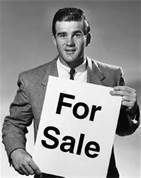 One option – also good for price negotiations – is to offer a fee for your presentation and have BOR sales. The other option is a higher fee that includes x-number of products written into the contract. The fee and products are paid for in advance (or at least partial as deposit returned with the contract). Total is paid for in advance and the items are shipped directly to the client – and there before the speaker even arrives.
One option – also good for price negotiations – is to offer a fee for your presentation and have BOR sales. The other option is a higher fee that includes x-number of products written into the contract. The fee and products are paid for in advance (or at least partial as deposit returned with the contract). Total is paid for in advance and the items are shipped directly to the client – and there before the speaker even arrives.
Referring to a term used a couple times above – it’s a win win situation. Plus the last option allows us to travel lighter – instead of packing a case of books, CD’s and DVD’s into an overhead compartment while a flight attendant gives us dirty looks… ha!!
Thanks everyone for reading and sharing!! I hope you find the advice and words of wisdom helpful in your career.
———————————
Dave’s next comedy workshop at The Cleveland Improv starts Saturday – July 13, 2013
Dave Schwensen is the author of How To Be A Working Comic: An Insider’s Business Guide To A Career In Stand-Up Comedy, Comedy FAQs And Answers: How The Stand-Up Biz Really Works, and Comedy Workshop: Creating & Writing Comedy Material for Comedians & Humorous Speakers.
For information about these books, comedy workshops at The Cleveland Improv, and private coaching for comedians and speakers in person, by phone or via Skype visit www.TheComedyBook.com
Copyright 2013 – North Shore Publishing
June 17, 2013
Personalize material for corporate gigs
Hi Dave – Can you give us a few examples of how to work event themes into your material for a corporate gig? What is your process like? – MD
Hey MD – Speakers and comedians who work corporate gigs on a regular basis will (or should) have their own ideas and techniques about this process. As always, I’ll throw the offer out there for any of you would like to contribute. Send suggestions to dave@thecomedybook.com or leave a comment here and I’ll share the best ones in an upcoming FAQs And Answers.
But in the meantime, since you asked…
As a speaker and booking agent for corporate events, I’ve always felt it was SUPER important to personalize your program (or comedy act) to the audience. Of course if you’re a big star it’s not as necessary. The event planner is hiring you because they already know who you are.
For the rest of us? It’s always a good idea to show we know who THEY are.
Speakers and comedians (and performers in general) call this customizing or personalizing their material. And even though they might be giving the same presentation as they did a thousand miles away the night before, they’ll insert references to the area, the event theme and/or the audience.
Think of it this way…

Sir Paul
Paul McCartney (sorry, I’m a classic rocker) is on tour this summer. He’s doing pretty much the same set (song list) for every show. He needs to because of the lighting cues, video displays and other techno stuff that is designed and rehearsed in advance. It’s the same with The Rolling Stones and other large arena acts.
To continue this thought, it’s like a speaker with a specific power point display or a comedian with a killer closing bit. They HAVE to do it for their program to be successful, which is what corporate clients pay big bucks for. BUT it can be tweaked to make the audience feel this particular program is special for them.
Example:
McCartney played The Staples Center in Los Angeles. You can bet he yelled something close to0, “Hello Los Angeles – we’re rockin’ tonight!”
The next week he might have been at Madison Square Garden in New York City. Would he welcome Los Angeles again that night? No – he would personalize it for his audience.
“Hello New York City – we’re rockin’ tonight!”
Get it? That’s a very simple example, but demonstrates how personalizing your material works.
Another example:
I’ve booked a lot of comedians from NYC and LA to do shows near Cleveland. Honestly? Unless they’re from the area, they don’t know a heck of a lot about Cleveland. But the smart ones (and I like working with smart performers) will usually look for ways to relate to their audience. A popular question the comedians ask…
What’s a suburb of Cleveland that the locals makes fun of?
I tell them Parma (don’t ask if you don’t know). Then during their show, the comic will reference Parma and the crowd will feel he really KNOWS them!
But you know what? They know nothing else about Parma except the name. Next week when they’re in another location, they’ll ask someone else the same question and substitute that area suburb into the same joke.
It’s called personalizing your performance for that particular audience. And it works – BIG time!! Audiences, talent bookers and event planners LOVE it!
———————————————————————————
Sign up now for Dave’s free weekly newsletter and
receive 15% off the Amazon.com list price!
———————————————————————————
Is there a certain process (getting back to the question) in doing this? Again, if you have a technique and care to share, just leave a comment or email dave@thecomedybook.com.
Here’s what I do for corporate bookings…
 Enclosed with the contract sent to the client or event planner (snail mail or as email attachments) is a one or two-page questionnaire. The best way to learn about an event and audience is to ask. Based on their answers, I’ll try to work some of the info they share into my presentation.
Enclosed with the contract sent to the client or event planner (snail mail or as email attachments) is a one or two-page questionnaire. The best way to learn about an event and audience is to ask. Based on their answers, I’ll try to work some of the info they share into my presentation.
Some of the questions I’ll ask…
Is there a theme for the event? If so – what is the theme?
Is there anything you’d like me to know about your city or event location?
Who are some key people in the company?
Will there be anyone in the audience you would like me to focus on as an audience participation volunteer or for special recognition?
What are products and/or services of the company?
If there a friendly-rival company I can mention – or not mention? Can I use (politically correct) humor at the expense of this rival company?
What are some favorite local hang-outs for employees?
Of course the list can go on and on, depending on how deep you want to get into personalizing your program.
Now, you might remember that in addition to personalizing, I also used the term customizing at the beginning of this article. This is an extra added attraction many speakers and comedians offer – usually for an additional fee.
In other words – they’re gonna charge more $$’s when they do more work.
Customizing involves finding out EXACTLY what the client wants you to talk about AND creating a presentation / comedy act based on that specific information. Again, the final program is usually based on the presentation or act the speaker has in the past – and what got them hired in the first place.
Example:

Sir Carrot
If you talk about communications, no client is going to hire you to customize a program on accounting. Same with comedy. If you’re Carrot Top, they’re not going to tell you to leave your props home.
Like McCartney, huge audiences will pay to see him. But he’d better play more than a few Beatles and Wings songs or a majority will leave disappointed (and feel ripped-off).
But customizing does involve more work in learning more about the client, company and audience – and then actually creating material and using it. In my experience, customizing has involved interviewing (phone and/or email) the event planner, the client and other key people from the company. On the lesser hand, to only personalize an existing program I’ve never done more than ask for them to return the completed questionnaire with the contract.
Okay, so that’s my process. Now I’ll wait to hear what you do…
———————————
Dave’s next comedy workshop at The Cleveland Improv starts Saturday – July 13, 2013
Dave Schwensen is the author of How To Be A Working Comic: An Insider’s Business Guide To A Career In Stand-Up Comedy, Comedy FAQs And Answers: How The Stand-Up Biz Really Works, and Comedy Workshop: Creating & Writing Comedy Material for Comedians & Humorous Speakers.
For information about these books, comedy workshops at The Cleveland Improv, and private coaching for comedians and speakers in person, by phone or via Skype visit www.TheComedyBook.com
Copyright 2013 – North Shore Publishing


June 11, 2013
How old is too old to start?
Hi Dave – I worked as a comedian for ten years, opening and featuring. Is 51 years of age too old to go back into it? – D.K.
Hey D.K. – You know what? That’s one of those questions only you – and anyone else who checks out a calendar before making a move – can answer for sure. But also “fer’sure” I have a few thoughts about this, so here we go…
First of all, I consider comedy – writing and performing – to be a creative art. I’ve written that countless times in countless FAQs and Answers, so no detailed explanation is needed. It’s just the way it is.

Who ate the
remote control?
I also believe using your creativity and being psyched (excited) about sharing your “art” with others is like a Fountain of Youth. Don’t laugh – again, I’m serious. I’ve had too many former friends (and I mean former because I have no interest in hanging out with people like this) hit a lazy-boy chair (yeah, I know it’s La-Z-Boy, but I don’t feel like getting sued) at the age of 30 and announce they’re over the hill. They hang onto jobs they hate because it’s too much work to find another. Their free time is spent “vegging” and basically, watching and critiquing other people doing or creating other things.
They never seem to create anything except annoyance. And at least to me, they always seem to look and act a lot older than they really are. The only thing they accomplish is getting older.
Am I being too hard on these people? Maybe, but they won’t read this anyway.
And now that I’ve made my opinion perfectly clear, let me tell you about another creative artist who doesn’t look at his age as a barrier.
Oh yeah, and we’re still friends…
———————————————————————————
Sign up now for Dave’s free weekly newsletter and
receive 15% off the Amazon.com list price!
———————————————————————————
A musician pal I hung with in NYC was deeply into heavy metal rock’n roll. We’re talking Led Zeppelin, KISS and Guns & Roses type of screaming vocals, guitars, drums and, as expected, The Look of being a rock star. He didn’t make it as a teenager, or even into his 20′s or 30′s. But you know what?
He’s now in his 50′s and rockin’ out harder than ever.
He has a real job to support his creative endeavors, but instead of putting his salary into a more comfortable chair and big screen TV experience, he build a recording studio in his basement. He’s continually writing (creating) and recording (performing). It’s his creative outlet and passion – but also more than just a hobby, like playing in a local band on the weekends.
It’s a business.
About once a year he has enough material to release a CD of hard rock originals on his own independent label (same as self-publishing your book). He’s developed a fan base in Germany and some Eastern European countries that the more youthful independent (and inexperienced) bands haven’t even discovered yet.
It keeps him off the couch and more importantly, from wondering:
“What if…?”
So, how would you answer that question ten years from now? You might think 51 is old – but it’s not as old as you’ll be tomorrow, next week or next year. If you have a creative passion and want to give comedy shot, there’s no better time than now.
And yeah, I know. That sounds like such an overused, tired and old cliche. But it wouldn’t be overused, tired and old if it didn’t make sense.
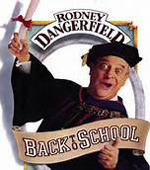 I won’t even get into stories of creative artists making it in their careers until they were older (Google Grandma Moses if you really need an example). I’ve heard Rodney Dangerfield sold paint until he was 40. Not sure how true that is (anyone want to throw me some facts?) but I tend to believe it.
I won’t even get into stories of creative artists making it in their careers until they were older (Google Grandma Moses if you really need an example). I’ve heard Rodney Dangerfield sold paint until he was 40. Not sure how true that is (anyone want to throw me some facts?) but I tend to believe it.
There are different ways you can get back into the comedy game at a more advanced age. You need to consider your material and audience. But then again, that’s what just about every comic needs to do anyway.
For instance, you have a better chance of winning the Lottery than making a comedy career on the college circuit. Through my experience as a college agent I know that’s true. And as father to a teenager, there’s nothing easier for them to tune-out than an old person (think over 30) trying to make them laugh.
[image error]
Bill Engvall & Dave
“Where’s MY sign?”
I remember interviewing Bill Engvall for my book Comedy FAQs And Answers and mentioning that I thought he’d get a lot of work in the college market. He told me I was nuts. He said his material was about being married and raising a family, which ain’t exactly what college audiences relate to.
I’m only surprised he didn’t hand me the invisible sign that read, “Here’s your sign!” He was sooo right…
But as you know, I also talk about the potential for work in more mature (think again over 30) markets, which means pretty much anything other than college and high school prom shows. Your open-mic circuit can include Rotary Clubs as well as comedy clubs. It’s a matter of writing material your potential audience will relate to and laugh at – and then finding the best venues to deliver it to them.
It’s also about telling yourself you’re not too old to do something you really want to do.
So for another inspiring example to get you off the lazy-boy and onto the stage…
The age range in my comedy workshops has been pretty wide. We’ll go as young as 13 and as old as… well, there’s no limit. The record so far is 72 years young. And you know what?
He ended up working a lot more than some of the youngest members.
This late-starting comedian knew what he was interested in talking about and what potential audience would be interested in hearing it. His material was about being 72 and some of the things he – and others near his age – was doing and dealing with. He was fun(ny), active and creative. And believe it or not, he started working almost immediately because he was an original rarity.
An older adult doing comedy.
He booked MC spots in good clubs, but made a financial KILLING playing events for senior citizens. I kid you not! Last time we talked – and this was a few years ago – he was a working comic and bouncing around like a guy half his age.
Okay, maybe except for the ones half his age that are stuck in comfortable chairs critiquing him for being “too old” to do that sort of thing…
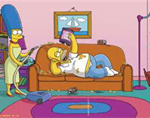
I ate the
remote control
So, are you too old at age 51?
It’s up to you, but I don’t know if that reason alone could truly hold a creative artist back from at least giving it a shot. As far as I’m concerned, it beats the heck out of “vegging” in a chair and watching someone else go for it on your large screen TV…
———————————
Dave’s next comedy workshop at The Cleveland Improv starts Saturday – July 13, 2013
Dave Schwensen is the author of How To Be A Working Comic: An Insider’s Business Guide To A Career In Stand-Up Comedy, Comedy FAQs And Answers: How The Stand-Up Biz Really Works, and Comedy Workshop: Creating & Writing Comedy Material for Comedians & Humorous Speakers.
For information about these books, comedy workshops at The Cleveland Improv, and private coaching for comedians and speakers in person, by phone or via Skype visit www.TheComedyBook.com
Copyright 2013 – North Shore Publishing



